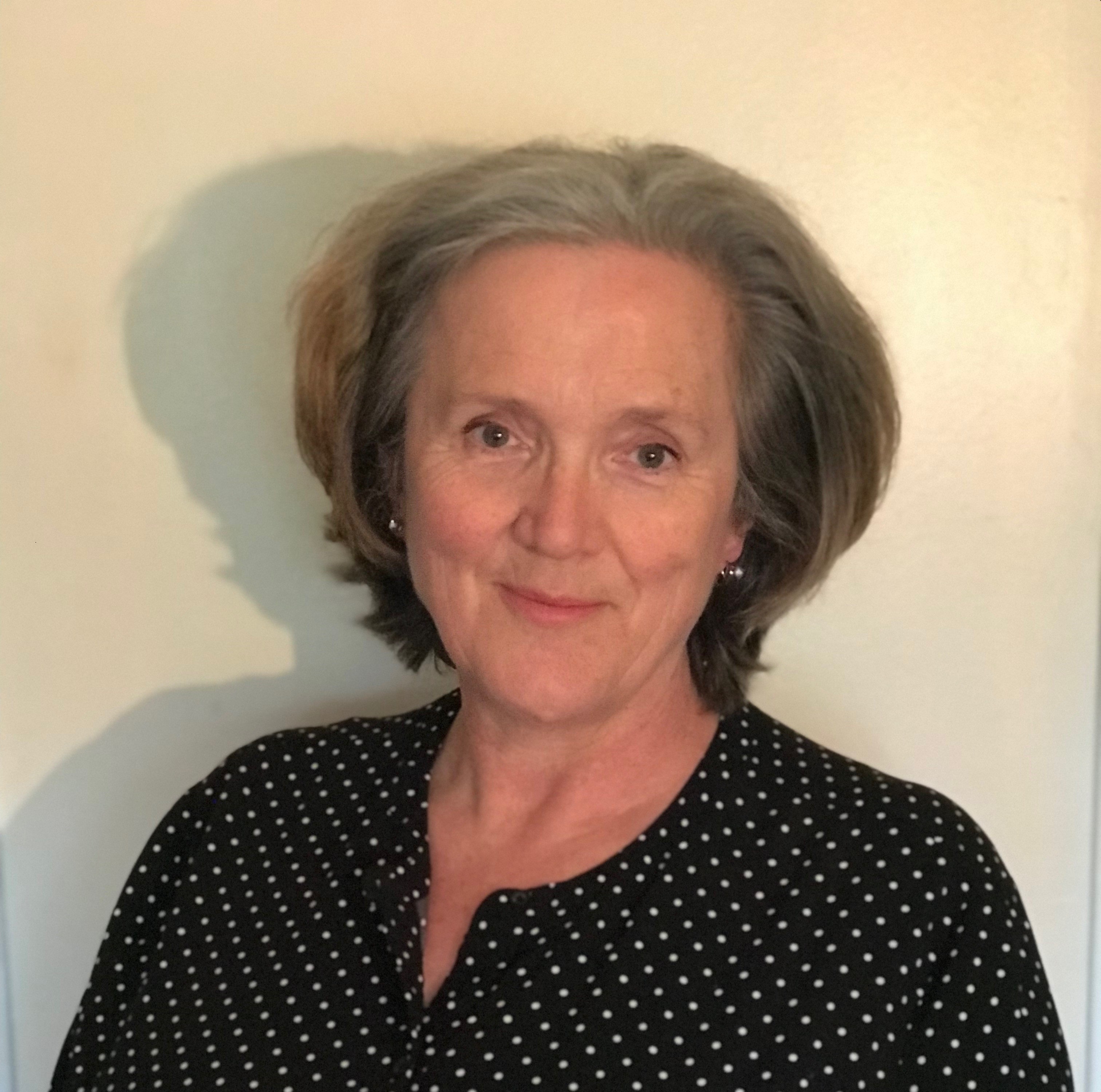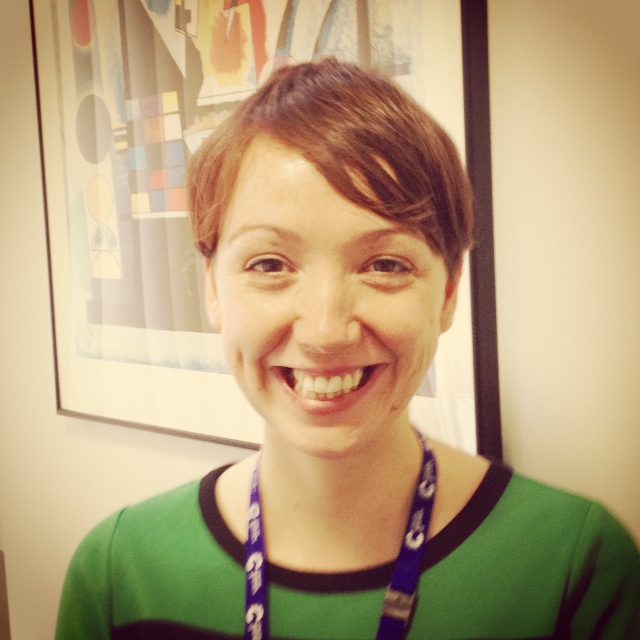
The 1st International Electronic Conference on Cancers: Exploiting Cancer Vulnerability by Targeting the DNA Damage Response
Part of the International Electronic Conference on Cancers (IECC) series
1–14 February 2021
DNA Damage Response (DDR), DNA Repair, cell cycle checkpoints, Synthetic Lethality, DDR Targeted Therapy: Preclinical and Clinical Studies, Immune Checkpoints, Biomarkers
- Go to the Sessions
-
- 1. Overview of targeting DDR dysfunction in cancer
- 2. DNA damage cell cycle checkpoints
- 3. DNA repair, defects in cancer and their exploitation
- 4. MMR defects, mutator phenotype
- 5. SUMO and ubiquitination and other epigenetic and post-translational mechanisms
- 6. Targeting with immune checkpoint inhibitors
- 7. Overview and use of biomarkers in clinical trials
- 8. Poster
- Event Details
-
- Announcement
- Welcome from the Chairs
- Conference Chairs
- Invited Speakers
- Sessions
- IECC Live Sessions Information
- Program of IECC Live Sessions
- Online Sessions Recordings
- List of Accepted Submissions
- Instructions for Authors
- Event Awards
- Conference Organizers
- Sponsors and Partners
- Events in series IECC
IECC 2021 has been a success! Welcome to the new electronic conference IECC 2023.
Announcement
Warmest congratulations on the success of the 1st International Electronic Conference on Cancers: Exploiting Cancer Vulnerability by Targeting the DNA Damage Response (IECC2021). Many thanks for your participation.
All participants of IECC2021 are welcome to submit the extended work to the Cancers (IF 6.126) Special Issue “IECC2021: Exploiting Cancer Vulnerability by Targeting the DNA Damage Response”.
Welcome from the Chairs
Dear Colleagues,
We are pleased to announce the 1st International Electronic Conference on Cancers: Exploiting Cancer Vulnerability by Targeting the DNA Damage Response: 1–14 February 2021
Defects in the DNA damage response (DDR), comprising DNA repair and cell cycle checkpoint signalling, can promote tumorigenesis by creating increased genomic instability. These defects create tumour vulnerabilities that can be exploited for therapeutic gain. This conference aims to promote and advance the exciting and rapidly changing field of exploiting DDR dysregulation for cancer therapy. It will bring together experts in basic, translational and clinical research to discuss the current research and the opportunities and obstacles that lie ahead of the field, as we seek to translate the concepts of synthetic lethality, gene addiction and checkpoint inhibition into cancer therapies together.
The focus of this conference is the translation of basic science understanding of the DNA damage response (DDR), and its dysregulation in cancer to its therapeutic exploitation. Topics of interest include, but are not limited to:
- DNA function and its dysregulation in cancer, including epigenetic and post-translational mechanisms
- Role of the DDR in immune signalling
- Targeted therapies exploiting DDR dysregulation and translation of determinants of sensitivity to predictive biomarkers
- Clinical studies with DDR-targeted therapies
There will be seven specific sessions:
- Session 1: Overview of targeting DDR dysfunction in cancer
- session 2: DNA damage cell cycle checkpoints
- Session 3: DNA repair, defects in cancer and their exploitation
- Session 4: MMR defects, mutator phenotype
- Session 5: SUMO and ubiquitination and other epigenetic and post-translational mechanisms
- Session 6: Targeting with immune checkpoint inhibitors
- Session 7: Overview and use of biomarkers in clinical trials
and a poster session. Posters can be presented without an accompanying proceedings paper, and will be available online on this website, during and after the e-conference. However, they will not be added to the proceedings of the conference.
Participants will have the opportunity to examine, explore and critically engage with issues and advances in these areas. We hope to facilitate discussions and exchange within the community.
This event will solely be an online proceeding which allows participation from all over the world, with no concerns for travel and related expenditures. This type of conference is particularly appropriate and useful because research concerned with cancers is progressing rapidly. An electronic conference provides a platform for rapid and direct exchanges about the latest research findings and novel ideas. Participation, as well as the “attendance” of this online conference, is free of charge.
The 1st International Electronic Conference on Cancers: Exploiting Cancer Vulnerability by Targeting the DNA Damage Response will be held at IECC2021.sciforum.net, on a platform developed by MDPI to organize electronic conferences.
The 1st International Electronic Conference on Cancers: Exploiting Cancer Vulnerability by Targeting the DNA Damage Response is sponsored by MDPI and the scientific journal Cancers. Accepted conference papers will be published in the proceedings of this e-conference. All participants are cordially invited to contribute with a extended full manuscript to Cancers Special Issue IECC2021: Exploiting Cancer Vulnerability by Targeting the DNA Damage Response with a 20% discount off the APC. Cancers (ISSN 2072-6694; IF 6.126) is a peer-review Open Access journal of oncology published semimonthly online by MDPI.
The best conference paper and presentation will receive an award of 500 CHF, as well as an offer to publish an extended paper, free of charge, in the Special Issue of the journal Cancers.
We hope the community will share this enthusiasm and help making this conference a success.
Kind regards,
Prof. Dr. Nicola Curtin
Dr. Helen E. Bryant
Conference Secretariat
Ms. Dimity Wang
Ms. Donna Xue
iecc2021@mdpi.com
Time Schedule
Abstract Deadline: 6 December 2020
Abstract Acceptance Notification Deadline: 20 December 2020
Full Paper Submission Deadline: 20 January 2021
Conference Date: 1–14 February 2021
Live Sessions: 1–3 February 2021
Awards Announcement: 30 April 2021
Conference Chairs

Northern Institute for Cancer Research, Newcastle University, Newcastle upon Tyne, NE2 4HH, UK

Department of Oncology and Metabolism, The Medical School, Beech Hill Road, Sheffield S10 2RX, UK
Conference Committee

Department of Biochemistry and Molecular Biology, Robson DNA Science Centre, Arnie Charbonneau Cancer Institute, University of Calgary,Calgary, Alberta, Canada
Dr. Lees-Miller received her PhD from the University of Wales in the UK, then had a postdoctoral fellowship at the University of Alberta in Canada and at Brookhaven National Laboratory in NY, USA. In 1992 she returned to Canada to take up a Faculty position at the University of Calgary. From 2003 to 2018 Dr. Lees-Miller held the Engineered Air Chair in Cancer Research and until 2020 was head of the Robson DNA Science Centre at the University of Calgary. Her research focusses on the role of the phosphatidylinositol-3 kinase-like protein kinases DNA-dependent protein kinase catalytic subunit (DNA-PKcs) and Ataxia-Telangiectasia Mutated (ATM) in the DNA damage response. She has published over 180 peer-reviewed articles that have been cited over 20,000 times. In 2011, Dr. Lees-Miller was elected to the Royal Society of Canada in recognition of her work on the DNA damage response.

Centre for Molecular Oncology, Barts Cancer Institute, Queen Mary University of London, Charterhouse Square, London, UK
Sarah Martin is a Reader in Cancer Cell Biology from Queen Mary University of London, where her research is largely focused on investigating the role of the DNA mismatch repair (MMR) pathway in tumourigenesis and how loss of this pathway can be therapeutically targeted. Her recent focus has been on investigating the role of MMR loss and its influence on mitochondrial metabolism, and how this may impact disease progression and treatment.

Birmingham Centre for Genome Biology, Institute of Cancer and Genomic Sciences, Medical and Dental Schools, University of Birmingham, Birmingham, UK.
Jo is interested in the Ubiquitin and SUMO and other post-translation systems and how they relate to the regulation of mammalian DNA repair and DNA replication. This includes how the BRCA1 ubiquitin ligase contributes to 53BP1 placement in DNA repair, how deSUMOylation regulates DNA repair timing through MDC1 regulation, and how proline isomerisation regulates replication fork protection through altering RAD51 interactions.

Department of Molecular and Clinical Cancer Medicine, Cancer Research Centre, University of Liverpool, 200 London Road, Liverpool L3 9TA, UK

Department of Radiation Biology, Institute for Cancer Research, Norwegian Radium Hospital, Oslo University Hospital, Oslo, Norway

Unit of Molecular Oncology, University of Sheffield, Sheffield, UK
Invited Speakers
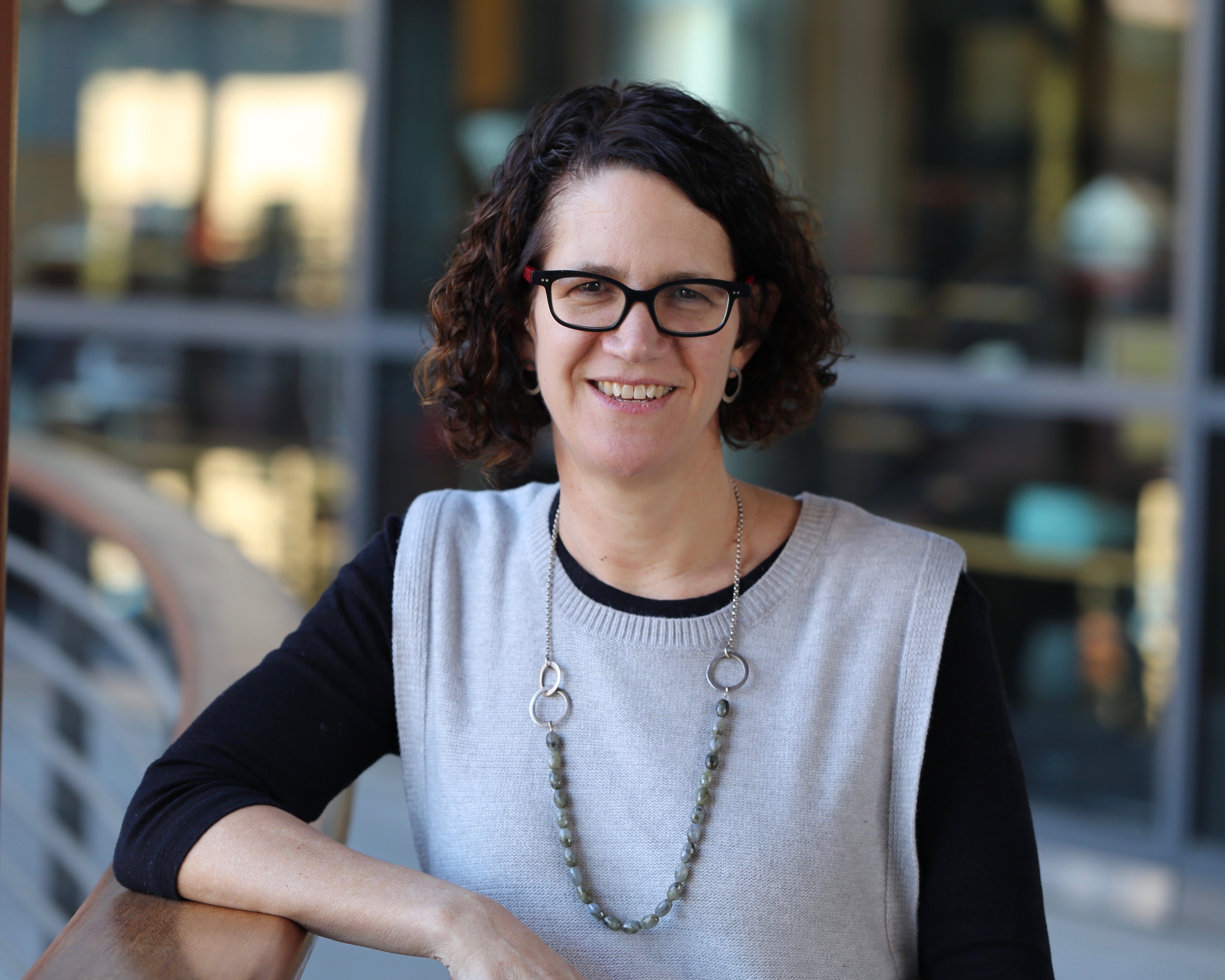 |
Prof. Dr. Karlene A. Cimprich Invited Talk: |
|
Karlene Cimprich is a Professor at Stanford University in the Department of Chemical and Systems Biology. She is particularly interested in how cells maintain genomic stability during DNA replication. Her lab studies replication stress signalling by the checkpoint kinase ATR, which she cloned as a postdoctoral fellow, and DNA damage tolerance pathways, which help to suppress replication stress. Her lab also studies R-loops and the mechanisms by which they cause DNA damage, interfere with replication, and induce genome instability. Dr. Cimprich serves on several Editorial Boards, has organized a number of international meetings, and is a recipient of numerous awards. She is also an AAAS fellow and an American Cancer Society Research Professor. |
|
|
|
Dr. Susan Lees-Miller Department of Biochemistry and Molecular Biology, Robson DNA Science Centre, Arnie Charbonneau Cancer Institute, University of Calgary, Calgary, Alberta, Canada |
|
Dr. Lees-Miller received her PhD from the University of Wales in the UK, then had a postdoctoral fellowship at the University of Alberta in Canada and at Brookhaven National Laboratory in NY, USA. In 1992 she returned to Canada to take up a Faculty position at the University of Calgary. From 2003 to 2018 Dr. Lees-Miller held the Engineered Air Chair in Cancer Research and until 2020 was head of the Robson DNA Science Centre at the University of Calgary. Her research focusses on the role of the phosphatidylinositol-3 kinase-like protein kinases DNA-dependent protein kinase catalytic subunit (DNA-PKcs) and Ataxia-Telangiectasia Mutated (ATM) in the DNA damage response. She has published over 180 peer-reviewed articles that have been cited over 20,000 times. In 2011, Dr. Lees-Miller was elected to the Royal Society of Canada in recognition of her work on the DNA damage response. |
|
|
|
Dr. Sarah-Anne Martin Centre for Molecular Oncology, Barts Cancer Institute, Queen Mary University of London, Charterhouse Square, London, UK |
|
Sarah Martin is a Reader in Cancer Cell Biology from Queen Mary University of London, where her research is largely focused on investigating the role of the DNA mismatch repair (MMR) pathway in tumourigenesis and how loss of this pathway can be therapeutically targeted. Her recent focus has been on investigating the role of MMR loss and its influence on mitochondrial metabolism, and how this may impact disease progression and treatment. |
|
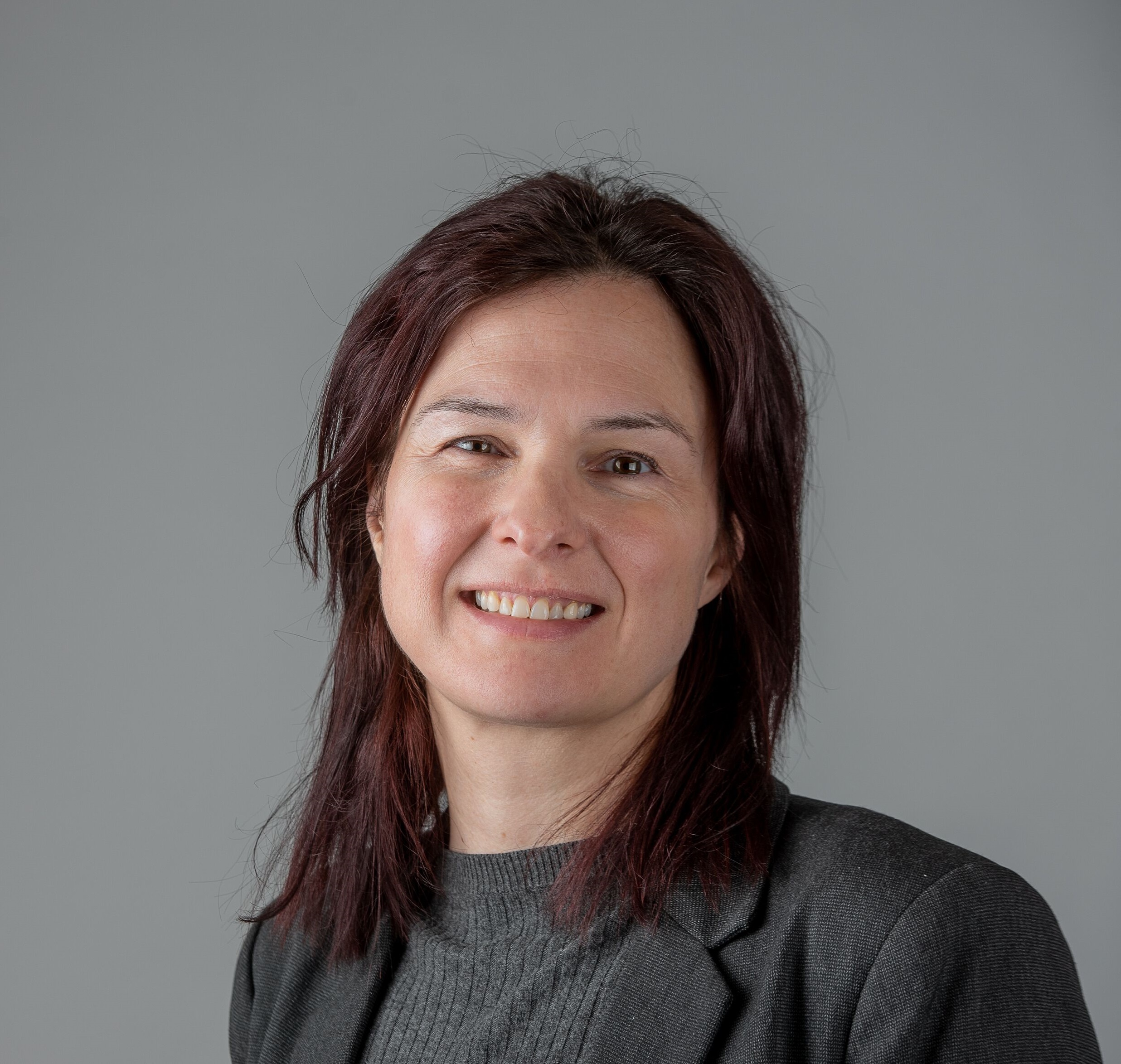 |
Prof. Dr. Jo Morris School of Education, Department of STEM Education, Physics Birmingham Centre for Genome Biology, Institute of Cancer and Genomic Sciences, Medical and Dental Schools, University of Birmingham, Birmingham, UK Invited Talk |
|
Jo is interested in the Ubiquitin and SUMO and other post-translation systems and how they relate to the regulation of mammalian DNA repair and DNA replication. This includes how the BRCA1 ubiquitin ligase contributes to 53BP1 placement in DNA repair, how deSUMOylation regulates DNA repair timing through MDC1 regulation, and how proline isomerisation regulates replication fork protection through altering RAD51 interactions. |
|
 |
Dr. Juanita Suzanne Lopez Phase I Drug Development Unit, The Royal Marsden Hospital and The Institute of Cancer Research, Sutton, UK Invited Talk |
| Dr Juanita Lopez is a Consultant Medical Oncologist at the Phase I Drug Development Unit at the Royal Marsden and the Institute of Cancer Research, specialising in early phase translational drug development and the treatment of patients with brain tumours. Dr Lopez graduated from the University of Cambridge with a double first class in 2001, obtaining numerous prizes and completing an intercalated laboratory research year in development neurosciences. She then completed her general medical training in London, and was awarded the MRCP in 2004. She was awarded a four year Clinical Research Training Fellowship from Avon-Breakthrough Breast Cancer to carry out laboratory research at the ICR, which led to the award of a PhD. Her main research interests lie in understanding the interplay between inflammation, immune responses and cancer, and rationally developing novel treatments and combinations. She has served as UKCI for a number of early phase clinical trials including first-in-human trials, as well as several for brain tumours. | |
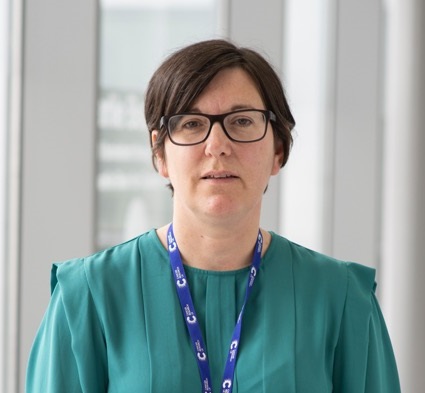 |
Dr. Yvette Drew Northern Institute for Cancer Research, Newcastle University, Newcastle, UK
|
|
Dr Yvette Drew is a Clinical Senior Lecturer and Honorary Consultant in Medical Oncology in at the Northern Centre for Cancer Care (NCCC) and the Clinical and Translational Research Institute, Newcastle University. She undertook specialist medical oncology training at the Beatson West of Scotland Cancer Centre, Glasgow and the NCCC. During this time she was awarded a CRUK-funded PhD fellowship investigating the role of PARP inhibitors in homologous-recombination-deficient ovarian cancer. During her PhD she won a Merit award for her research from the American Society of Clinical Oncology (ASCO) and was awarded the Medical Sciences Doctoral Prize (Newcastle University, 2013). She has played a key role in both the pre-clinical and clinical development of PARP inhibitors in ovarian cancer. Her current post is split between the systemic management of gynaecological cancers and the development of novel therapies through early phase clinical trials. Dr Drew is deputy lead for the Newcastle Experimental Cancer Medicines Centre for early phase clinical trials delivery, a member of both the NCRI Ovarian and Endometrial clinical studies sub-groups and PI and national CI on a number of endometrial and ovarian cancer trials. Research interests lie in targeting DNA repair pathways as treatment for cancer. |
|
Sessions
2. DNA damage cell cycle checkpoints
3. DNA repair, defects in cancer and their exploitation
4. MMR defects, mutator phenotype
5. SUMO and ubiquitination and other epigenetic and post-translational mechanisms
6. Targeting with immune checkpoint inhibitors
7. Overview and use of biomarkers in clinical trials
8. Poster
IECC Live Sessions Information
During the duration of the conference, a number of live online sessions will be programmed. Each session will consist on 1–4 speakers lecturing on special topics, and will be moderated by a chair. During each session, the participants will have the possibility to ask questions during a Q&A session. Detailed information about the topics will be shared later.
The live sessions are free. The number of participants to the live session is limited but the recording will be made available on Sciforum shortly afterwards.
Program of IECC Live Sessions
1 February 2021
Session 1: Overview of targeting DDR dysfunction in cancer
Date: 1 February 2021
Time: 12:00pm (GMT) | 07:00am (EDT) | 8:00pm (CST Asia)
|
Speaker |
Presentation Topic |
Time (GMT) |
|
Keynote Speaker |
Targeting DNA damage response pathway basic mechanisms and translational implications |
12:00pm – 12:45pm |
1 February 2021
Session 2: DNA damage cell cycle checkpoints
Date: 1 February 2021
Time: 12:45pm (GMT) | 07:45am (EDT) | 8:45pm (CST Asia)
|
Speaker |
Presentation Topic |
Time (GMT) |
| Chair and plenary speaker Prof. Dr. Karlene A. Cimprich |
The Causes and Consequences of Replication Stress |
12:45pm - 13:15pm |
|
Dr. Ruth Thompson |
A novel DNA damage checkpoint in mitosis |
13:15pm - 13:30pm |
|
Dr. Gro Elise Rødland |
Differential effects of combined ATR/WEE1 |
13:30pm - 13:45pm |
|
Dr. Shan Yan |
Distinct mechanisms of ATR-Chk1 DNA damage response pathway in response to DNA single-strand break |
13:45pm - 14:00pm |
1 February 2021
Session 3: DNA repair, defects in cancer and their exploitation
Date: 1 February 2021
Time: 14:30pm (GMT) | 09:30m (EDT) | 10:45pm (CST Asia)
|
Speaker |
Presentation Topic |
Time (GMT) |
|
Chair and plenary speaker |
Targeting ATM-deficient cancers with PARP inhibitors |
14:30pm – 15:00pm |
|
Dr. Laura Monaghan |
KDM4A inhibition sensitises Acute Myeloid Leukaemia cells to PARP inhibitors through impairing Non-Homologous End Joining pathway and enhancing PARP trapping |
15:00pm – 15:15pm |
|
Dr. David King |
MYCN over-expression in Neuroblastoma potentiates PARP inhibitor induced radiosensitization |
15:15pm – 15:30pm |
|
Dr. Mats Ljungman |
Specific induction of DSBs in cancer cells by targeting chromosome rearrangements with CRISPR Technology |
15:15pm – 15:30pm |
2 February 2021
Session 4: MMR defects, mutator phenotype
Date: 2 February 2021
Time: 12:00pm (GMT) | 07:00am (EDT) | 8:00pm (CST Asia)
|
Speaker |
Presentation Topic |
Time (GMT) |
|
Chair and plenary speaker |
Targeting DNA MMR loss as a therapeutic strategy in cancer |
12:00pm – 12:30pm |
|
Dr. Tuyen Dang |
Elucidating the role of XRN2-mediated DNA repair programs |
12:30pm – 12:45pm |
|
Dr. Victoria Dunne |
Synergistic activity of DNA damage response kinase inhibitors in combination with the targeted alpha therapy radium-223 dichloride for metastatic castration-resistant prostate cancer |
12:45pm – 13:00pm |
|
Dr. Carolina Velázquez |
Exploiting DNA Repair Defect in Triple Negative Brest Cancer Using CDK Inhibition Strategy |
13:00pm – 13:15pm |
2 February 2021
Session 5: SUMO and Ubiquitination and other epigenetic and post-translational mechanisms
Date: 2 February 2021
Time: 14:00pm (GMT) | 09:00am (EDT) | 10:00pm (CST Asia)
|
Speaker |
Presentation Topic |
Time (GMT) |
| Chair Dr. Ruth Thompson |
N/A |
|
|
Plenary speaker |
|
14:00pm – 14:30pm |
|
Dr. Yi Sheng |
An Integrated Structure-based Approach for the Development of MDM2 inhibitors |
14:30pm – 14:45pm |
|
Dr. Alexandre Maréchal |
SMARCAL1 Ubiquitylation Controls its Association with RPA-ssDNA and Promotes Fork Stability |
14:45pm – 15:00pm |
|
Dr. Tham Thi Nguyen |
Epigenetic deregulation of nuclear transport impacts DNA repair capacity and treatment resistance in glioblastoma |
15:00pm – 15:15pm |
3 February 2021
Session 6: Targeting with immune checkpoint inhibitors
Date: 3 February 2021
Time: 12:00pm (GMT) | 07:00am (EDT) | 8:00pm (CST Asia)
|
Speaker |
Presentation Topic |
Time (GMT) |
| Chair and plenary speaker Dr. Juanita Suzanne Lopez |
Making invisible tumours visible – what next after Immune Checkpoint Inhibitors? |
12:00pm - 12:30pm |
|
Dr. Cucchi Danilo |
Mechanistic investigation of response to immune checkpoint blockade upon DNA Damage |
12:30pm - 12:45pm |
|
Dr. Jing Zhang |
Anti-inflammatory combinatorial therapy to enhance killing efficacy with patient-derived preclinical models |
12:45pm - 13:00pm |
|
Dr. Jian Li |
Depleting upregulated DNA polymerase theta (pol θ) in esophageal squamous cell carcinoma (ESCC) inhibits tumor growth, promotes genome instability, and induces ISGs expression through cGAS activation |
13:00pm - 13:15pm |
3 February 2021
Session 7: Overview and use of biomarkers in clinical trials
Date: 3 February 2021
Time: 14:00pm (GMT) | 09:00am (EDT) | 10:00pm (CST Asia)
|
Speaker |
Presentation Topic |
Time (GMT) |
|
Chair and plenary speaker |
A moving target - the use of predictive biomarkers in the targeting the DNA damage response in cancer |
14:00pm – 14:30pm |
|
Dr. Françoise Dantzer |
The therapeutic significance of PARP3 inhibition in highly aggressive cancers |
14:30pm – 14:45pm |
|
Dr. Jason Parsons |
Targeting the cellular DNA damage response following proton beam therapy |
14:45pm – 15:00pm |
|
Prof. Dr. Michael Hausmann |
Space and time in the universe of the cell nucleus after ionizing radiation attacks: a comparison of cancer and non-cancer cell response |
15:00pm – 15:15pm |
Online Sessions Recordings
In this section, you will find the recordings of the Live Sessions to watch, re-watch and share with your colleagues!
1 February 2021
Session 1 - Overview of targeting DDR dysfunction in cancer
Session 2 - DNA damage cell cycle checkpoints
Session 3 - DNA repair, defects in cancer and their exploitation
2 February 2021
Session 4 - MMR defects, mutator phenotype
Session 5 - SUMO and Ubiquitination and other epigenetic and post-translational mechanisms
3 February 2021
Session 6 - Targeting With Immune Checkpoint Inhibitors
Session 7 - Overview and Use of Biomarkers in Clinical Trials
List of accepted submissions (43)
| Id | Title | Authors | Presentation Video | Poster PDF | |||||||||||||||||||||||||||||||||||||
|---|---|---|---|---|---|---|---|---|---|---|---|---|---|---|---|---|---|---|---|---|---|---|---|---|---|---|---|---|---|---|---|---|---|---|---|---|---|---|---|---|---|
| sciforum-040333 | Loss of TRIM33 Leads to Chromosomal Instability and Increased Endogenous DNA Damage in Multiple Myeloma | , , |
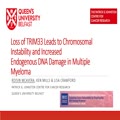
|

|
Show Abstract |
||||||||||||||||||||||||||||||||||||
|
Multiple Myeloma (MM) is an incurable haematological malignancy characterised by the clonal proliferation of plasma cells. Deletion of chromosome 1p (del1p) is a common genetic event associated with high-risk MM. Located within this region at 1p13.2 is TRIM33, a chromatin-associated E3 ligase which can function as a transcriptional co-repressor. Recent studies have shown that TRIM33 functions in the PARP-dependent DNA Damage Response (DDR). However, its molecular function during the DDR remains unclear. Here, we investigated the impact of TRIM33 loss on genome stability and the DDR in MM. Using the publicly available CoMMpass (Relating Clinical Outcomes in MM to Personal Assessment of Genetic Profile) dataset, we identified 69 (9.5%) out of 730 newly diagnosed MM patients that had a copy number loss of TRIM33. Kaplan-Meier analysis revealed that these patients have a poorer overall survival compared to those without TRIM33 loss (median 52.3 months vs 72.6 months; p<0.0001). In addition, these patients have a significantly higher number of structural variants (median 38 vs 26; p<0.0001) indicative of increased chromosomal instability. We show that TRIM33 is rapidly recruited to chromatin following 2Gy irradiation, where it transiently interacts with the chromatin remodelling enzyme ALC1. Western blotting and immunofluorescence staining revealed an increase in double-strand break markers γH2AX and 53BP1 (p<0.001) in TRIM33 knockdown cells, along with increased expression of key HR protein RAD51 (p<0.01). MM patients with loss of TRIM33 similarly exhibited significantly higher gene expression of 53BP1 and RAD51 (p<0.0001) indicating a potential HR dysregulation. We have demonstrated that TRIM33 loss results in chromosomal instability and increased endogenous DNA damage in MM, typical of a DDR defect. Further understanding the role of TRIM33 in the DDR may lead to opportunities to therapeutically exploit DDR defects in patients with TRIM33 loss. |
|||||||||||||||||||||||||||||||||||||||||
| sciforum-041457 | Excessive new origin firing underlies selective glioma stem cell cytotoxicity induced by replication stress response inhibition | , , |

|

|
Show Abstract |
||||||||||||||||||||||||||||||||||||
|
Background Glioblastoma (GBM) is a treatment refractory cancer of extreme unmet need which exhibits treatment resistance due to a subpopulation of GBM cancer stem cells which have constitutive DNA damage response activation driven by elevated replication stress (RS). RS response inhibition is potently cytotoxic to GSC, however mechanistic understanding will be key to biomarker discovery and successful clinical translation. Aims/Objectives We investigated response to combined ATR and PARP inhibition (CAiPi) to gain mechanistic insight and inform biomarker development. Feasibility of this approach was explored in an in vivo orthotopic GBM model. Methods/Results Responses to CAiPi in a panel of primary paired GBM GSCs vs differentiated progeny were heterogenous. CAiPi is selectively GSC cytotoxic in a subpopulation of tumours. A population of treatment-sensitive GSCs with increased numbers of 53BP1 nuclear bodies in G1 phase with CAiPi were identified, indicative of under-replication of DNA in S phase. DNA fibre analysis identified increased new origin firing with PARPi, which was correlated with increased PARP trapping. Inhibition of origin firing by exposure to roscovitine rescued the CAiPi cytotoxic phenotype, suggesting origin firing has an important role in selective GSC cytotoxicity. In vivo PK studies have demonstrated effective tumour penetration by both drugs. Conclusions Selective GSC cytotoxicity is induced by CAiPi via dysregulation of replication, by both DNA under-replication resulting in DNA lesions, and the novel finding of increased new origin firing in GSC due to PARPi. In vivo survival studies of CAiPi are planned. |
|||||||||||||||||||||||||||||||||||||||||
| sciforum-041979 | 5-aminosalicylate–4-thiazolinone hybrid derivatives: A potent modulator of DNA damage response and G2/M cell cycle arrest via ATM/ATR pathway and Cyclin-CDK complex | , , , , , , , , , | N/A |

|
Show Abstract |
||||||||||||||||||||||||||||||||||||
|
The last several years have witnessed a tremendous advance in the knowledge of DNA repair and cell cycle mechanisms for the purpose of increasing the treatment efficacy of radiotherapy and DNA damaging agents. Thereby, targeting DNA damage and repair pathways and cell cycle checkpoints become an attractive rationale to optimize treatment strategies through identifying new targets. However, the improved knowledge has increased the complexity of DNA damage response (DDR) and checkpoint pathways which extremely proved challenges in the development of cell cycle and DNA repair targeting drugs. To this end, a novel approach of synthesizing new compounds has been recently introduced which involved accommodating two chemical entities that target several molecules into a single structure. Here we combined 5-aminosalicylic acid and 4-thiazolinone, which both reported to affect DDR and cell cycle progression, in a single structural framework to generate two derivatives named HH32 and HH33. The transcriptomic, in silico, and in vitro analysis has been used to uncover the anti-cancer potential of these two compounds. Both compounds exhibited a high cytotoxic effect against a panel of eight cancer cell lines from different tissue origins and showed a low toxicity profile on normal cells compared to Doxorubicin. The in-silico molecular docking predicts a strong binding of the HH32 and HH33 to cell cycle regulators like CDC2-cyclin B, CDK2-cyclin A complexes, and retinoblastoma. Interestingly, the transcriptomic analysis revealed that DNA double-strand repair and cell cycle are the most affected pathways by HH33 compound. These findings were validated using in vitro models and demonstrated the induction of DNA double-strand breaks and the stimulation of ATM/ATR signaling pathway by HH32 and HH33. In addition to the potent effect of HH compounds on cell cycle progression mediated through upregulation of cyclin-dependent kinase inhibitors and downregulation of G2/M phase cell cycle markers which ultimately arrest the cells at G2/M phase and promote apoptosis. In conclusion, the pleiotropic biological effect of HH32 and HH33 compounds on cancer cells suggests the requirement for assessing their anti-cancer activities in preclinical models which may lead to a new area in the development of potentially therapeutic drugs. |
|||||||||||||||||||||||||||||||||||||||||
| sciforum-041279 | ARID1A: The Good, the Bad and the Ugly. | , , , , , , | N/A |

|
Show Abstract |
||||||||||||||||||||||||||||||||||||
|
The chromatin-remodeling complex SWI/SNF is the most mutated remodeler that is currently described in many tumor types. Traditionally, it has been associated with a tumor suppressive role, leading the cellular machinery towards differentiation pathways and DNA repair processes. ARID1A is the most mutated SWI/SNF subunit across all human malignancies. It is also considered as one of the top mutated genes in lung adenocarcinoma (LUAD) and an important driver gene. However, there is a lack of phenotypical studies that confirm the tumor suppressive role of ARID1A in LUAD. We have observed that ARID1A depletion in LUAD cell lines significantly impaired cell viability and promoted apoptosis. At first glance, these results contradicted its initially defined tumor suppressor status and could not be explained by synthetic lethal events involving other SWI/SNF subunits or driver genes. In addition, when we down-regulated ARID1A in a normal lung cell line, we did not see a significant reduction of cell viability, suggesting a tumor context dependency of ARID1A. Moreover, after performing RNA-seq in A549 after ARID1A-knockdown, we observed some up-regulated pathways related with apoptosis and genotoxic stress responses. We found that the depletion of ARID1A enhanced DNA damage in cells and triggered a severe ER stress response that promoted apoptosis. In addition, the protein levels of other subunits of the SWI/SNF complex decreased upon ARID1A, which could explain a decrease of the DNA repair processes. Overall, we conclude that some LUAD cell lines are dependent on ARID1A expression in a tumor-dependent manner. In those contexts, ARID1A loss triggers a DNA damage-induced apoptosis, which could open new therapeutic opportunities. |
|||||||||||||||||||||||||||||||||||||||||
| sciforum-041981 | BRAT1 impairs DNA damage repair in glioblastoma cell lines |
,
Ömer Güllülü ,
,
,
,
|

|

|
Show Abstract |
||||||||||||||||||||||||||||||||||||
|
Glioblastomas (GBMs) are one of the most malignant brain tumors in adults. This is partly due to the potential presence of so-called glioma stem-like cells (GSCs), which are characterized by the expression of stemness markers and a resistance to radio- and chemotherapy. Previous work from us showed that after combination treatment of GSCs with Arsenic Trioxide and Gossypol, the protein BRCA1-associated ATM-activator 1 (BRAT1) was one of the most downregulated proteins. This protein is largely undescribed, but it has been shown to regulate DNA damage signaling through interaction with ATM, BRCA1 and DNA-PKcs in initial stages of DNA damage response. An unpublished analysis of the The Cancer Genome Atlas and The Human Protein Atlas databases showed an increased expression of BRAT1 in GBMs compared to healthy tissues and that an increased expression is negatively correlated with patient survival. Because of these findings, our goal is to analyze the radio-sensitizing effect of BRAT1 on FCS-grown (i.e. differentiated) highly radio-resistant GBM cells and GSCs. Here, using stable knockdowns of BRAT1, we show that it is needed for effective DNA repair after irradiation using a γH2AX-foci assay, whereas it is dispensable for cellular proliferation. A cell death analysis using Annexin V/propidium iodide staining revealed a first hint that BRAT1 downregulation sensitizes GBM cells to irradiation. Moreover, through immunofluorescent staining we showed that BRAT1 is needed for BRCA1 recruitment to DNA damage sites. Future experiments will aim at systematically analyzing the downstream effects of BRAT1 depletion and to determine further interactors. Thus, we hope to gain a deeper understanding of the mechanism of radio-resistance in GSCs, also in order to individually determine the effectiveness of radiotherapy. |
|||||||||||||||||||||||||||||||||||||||||
Instructions for Authors
Submissions should be made by authors online by registering with www.sciforum.net and using the "New Submission" function once logged into the system.
- Scholars interested in participating in the conference can submit their abstract (about 200–300 words) online on this website until 6 December 2020.
- The Conference Committee will notify the acceptance of the abstract by 20 December 2020.
- In case of acceptance, authors will be asked to submit their manuscript (short proceedings paper, 3-6 pages), along with a presentation, and optionally a video presentation of his/her paper (only PDF), until the submission deadline of 20 January 2021.
- The manuscripts and presentations will be available on IECC2021.sciforum.net for discussion and rating during the time of the conference, from 1–14 February 2021.
- All accepted proceedings papers will be published as one dedicated volume in MDPI Proceedings series journals (ISSN: 2504-3900). Publication of proceedings paper is free of charge.
- The open access journal Cancers (IF 6.126) will publish a conference Special Issue “IECC2021: Exploiting Cancer Vulnerability by Targeting the DNA Damage Response”. All participants are cordially invited to contribute with a full manuscript to this Special Issue.
Manuscripts for the proceedings issue must have the following organization:
First page:
- Title
- Full author names
- Affiliations (including full postal address) and authors' e-mail addresses
- Abstract
- Keywords
- Introduction
- Methods
- Results and Discussion
- Conclusions
- (Acknowledgements)
- References
Manuscripts should be prepared in MS Word or any other word processor and should be converted to PDF format before submission. The publication format will be PDF. The manuscript should count at least 3 pages (incl. figures, tables and references) and should not exceed 6 pages.
Authors are encouraged to prepare a presentation in PowerPoint or similar software, to be displayed online along with the manuscript. Slides, if available, will be displayed directly on the website using the IECC2021.sciforum.net proprietary slide viewer. Slides can be prepared in exactly the same way as for any traditional conference where research results are presented. Slides should be converted to PDF format before submission so that our process can easily and automatically convert them for online display.
Authors are also encouraged to submit video presentations. If you are interested in submitting a video presentation, please contact the conference organizer at iecc2021@mdpi.com to find out more about the procedure. The video should be no longer than 10 minutes and be prepared as any of the following formats: .MOV; .MPEG4; .MP4; .AVI; .WMV; .MPEGPS; .FLV.
Authors that wish to present a poster only, i.e., without proceedings paper, can do so in the poster session (session 8). Posters will be available on this conference website during and after the event. Like papers presented on the conference, participants will be able to ask questions and make comments about the posters. Posters can be presented without an accompanying proceedings paper and will be available online on this website during and after the e-conference. However, they will not be added to the proceedings of the conference.
Submission: Manuscripts should be submitted online at www.sciforum.net/login by registering and logging in.
Accepted File Formats
- MS Word: Manuscripts prepared in MS Word must be converted into a single file before submission. When preparing manuscripts in MS Word, the 1st International Electronic Conference on Cancers: Exploiting Cancer Vulnerability by Targeting the DNA Damage Response Microsoft Word template file (see download below) must be used. Please do not insert any graphics (schemes, figures, etc.) into a movable frame, as they can superimpose the text and make the layout very difficult to work with.
- LaTeX: Manuscripts prepared in LaTeX must be collated into one ZIP folder (including all source files and images, so that the Conference Secretariat can recompile the submitted PDF). When preparing manuscripts in LaTeX, please use the 1st International Electronic Conference on Cancers: Exploiting Cancer Vulnerability by Targeting the DNA Damage Response LaTeX template files.
The 1st International Electronic Conference on Cancers: Exploiting Cancer Vulnerability by Targeting the DNA Damage Response
Paper Format: A4 paper format; the printing area is 17.5 cm × 26.2 cm. The margins should be 1.75 cm on each side of the paper (top, bottom, left, and right sides).
- Formatting/Style: Papers should be prepared following the style of Proceedings. The full titles and the cited papers must be given. Reference numbers should be placed in square brackets [ ], and placed before the punctuation; for example, [1,2], [3] or [1–3], and all the references should be listed separately, and as the last section at the end of the manuscript.
- Author List and Affiliation Format: Authors' full first and last names must be given. Abbreviated middle names can be added. For papers written by various contributors, a corresponding author must be designated. The PubMed/MEDLINE format is used for affiliations: complete street address information including city, zip code, state/province, country, and email address should be added. All authors who contributed significantly to the manuscript (including writing a section) should be listed on the first page of the manuscript, below the title of the article. Other parties, who provided only minor contributions, should be listed under Acknowledgments only. A minor contribution might be a discussion with the author, reading through the draft of the manuscript, or performing English corrections.
- Figures, Schemes and Tables: Authors are encouraged to prepare figures and schemes in color. Full color graphics will be published free of charge. Figures and schemes must be numbered (Figure 1, Scheme I, Figure 2, Scheme II, etc.) and an explanatory title must be added. Tables should be inserted into the main text, and numbers and titles for all tables supplied. All table columns should have an explanatory heading. Please supply legends for all figures, schemes and tables. The legends should be prepared as a separate paragraph of the main text and placed in the main text before a table, a figure or a scheme.
For further enquiries, please contact us at iecc2021@sciforum.net.
Potential Conflicts of Interest
It is the authors' responsibility to identify and declare any personal circumstances or interests that may be perceived as inappropriately influencing the representation or interpretation of clinical research. If there is no conflict, please state here "The authors declare no conflict of interest." This should be conveyed in a separate "Conflict of Interest" statement preceding the "Acknowledgments" and "References" sections at the end of the manuscript. Financial support for the study must be fully disclosed under the "Acknowledgments" section.
Copyright
MDPI, the publisher of the Sciforum.net platform, is an open access publisher. We believe that authors should retain the copyright to their scholarly works. Hence, by submitting a communication paper to this conference, you retain the copyright of your paper, but you grant MDPI the non-exclusive right to publish this paper online on the Sciforum.net platform. This means that you can easily submit your paper to any scientific journal at a later stage and transfer the copyright to its publisher (if required by that publisher).
Event Awards
To acknowledge the support of the conference esteemed authors, and to recognize their outstanding scientific accomplishments, we are pleased to launch the Best Paper Awards and Best Poster Awards.
The Awards
Number of Awards Available: 1
The Best Paper Award is given to the paper judged to make the most significant contribution to the conference.Number of Awards Available: 2
The Best Poster Awards have been established to recognize the scientific merit exhibited in poster presentation and preparation.Terms and Conditions:
Best Paper Award
As a sponsor, Cancers would like to award the best paper as elected by all the conference committee. The award will consist of 500 Swiss Francs. We look forward to reviewing your contributions.
Criteria for Evaluation of Best Paper Award:
Criteria
- Full paper must be submitted to IECC 2021 conference;
- Originality/novelty of the paper;
- Significance of content;
- Scientific soundness;
- Interest to the readers;
- English language and style.
Evaluation
- Each Evaluation Committee member will give an assessment for each applicant in terms of the criteria outlined above;
- Total score for each presentation will be ranked, from highest to lowest;
- If two or more authors get the same score, a further evaluation will be carried out;
- All decisions made by the Evaluation Committee are final.
Best Poster Awards
As a sponsor, Cancers would like to grants an award (500 Swiss Francs) for the best poster presented at the conference. This prize is awarded by a jury to the best designed poster presented at the conference.
Posters should have the following information.
- Title (with authors and affiliations)
- Introduction/objectives/aims
- Methods
- Results
- Conclusion
- References
- Acknowledgements
- Contact information
Criteria of judgement on the presentation will be the ability to summarize the content of the work and to motivate people’s interest who look at the poster. Criteria of judgement on the poster will be clarity of poster and appearance quality.
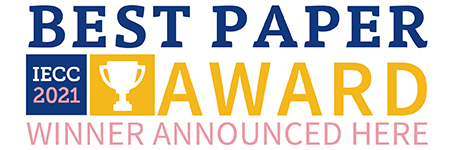 | 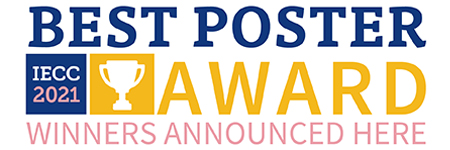 |
Winner: Responsive signatures established by pharmaco-transcriptomic correlation analysis identifies subsets for PARP-targeted therapy and reveals potential synergistic interactors(doi:10.3390/IECC2021-09207) Haitang Yang * , Beibei Sun, Sean R R R. R. Hall, Ke Xu, Liang Zhao, Ralph A. Schmid, Ren-Wang Peng, Feng Yao | Winners: Increased replication stress sensitises high risk neuroblastoma cells to ATR and PARP inhibition(doi:10.3390/IECC2021-09205) Harriet Southgate *, Lindi Chen, Deborah A Tweddle, Nicola J Curtin* Targeting OGG1 arrests cancer cell proliferation by inducing replication stress (doi: 10.3390/IECC2021-09213) Bishoy M. F. Hanna, Torkild Visnes, Carlos Benitez-Buelga, Armando Cazares-Körner, Kumar Sanjiv, Oliver Mortusewicz, Geoffrey Masuyer, Olov Wallner, Maurice Michel, Olga Loseva, Ann-Sofie Jemth, Christina Kalderen, Pal Stenmark, Ulrika Warpman Berglund, Thomas Helleday * |
Conference Organizers

Cancers (ISSN 2072-6694; CODEN: CANCCT) is a peer-reviewed Open Access journal of oncology published monthly online by MDPI.
cancers@mdpi.com
Sponsors and Partners
Cancers (ISSN 2072-6694; CODEN: CANCCT) is a peer-reviewed Open Access journal of oncology published monthly online by MDPI.
Organizers
1. Overview of targeting DDR dysfunction in cancer
Live session: Free Registration
Date and Time: 1 February 2021, 12:00 - 12:45 (GMT)
Keynote Speaker
Prof Kum Kum Khanna, QIMR Berghofer Medical Research Institute, Brisbane, Australia
Title Talk: Targeting DNA damage response pathway basic mechanisms and translational implications
Show all accepted abstracts (1) Hide accepted abstracts (1)
List of Accepted Abstracts (1) Toggle list
2. DNA damage cell cycle checkpoints
Live Session: Free Registration
Date and Time: 1 February 2021, 12:45 (GMT)
Session Chair
Prof. Dr. Karlene A. Cimprich, Department of Chemical and Systems Biology, Stanford University School of Medicine, Stanford, CA, USA
Talk Title: The Causes and Consequences of Replication Stress (12:45-13:15)
Session Speakers
Dr. Ruth Thompson, Department of Oncology and Metabolism, University of Sheffield Medical School, Sheffield, UK
Talk Title: A novel DNA damage checkpoint in mitosis (13:15-13:30)
Dr. Gro Elise Rødland, Department of Radiation Biology, Institute for Cancer Research, Norwegian Radium Hospital, Oslo University Hospital, Oslo, Norway
Talk Title: Differential effects of combined ATR/WEE1 inhibition in cancer cells (13:30-13:45)
Talk Title: Distinct mechanisms of ATR-Chk1 DNA damage response pathway in response to DNA single-strand break (13:45-14:00)
Show all accepted abstracts (4) Hide accepted abstracts (4)
List of Accepted Abstracts (4) Toggle list
3. DNA repair, defects in cancer and their exploitation
Live Session: Free Registration
Date and Time: 1 February 2021, 14:30 (GMT)
Session Chair
Dr. Susan Lees-Miller, Department of Biochemistry and Molecular Biology, Robson DNA Science Centre, Arnie Charbonneau Cancer Institute, University of Calgary, Calgary, Alberta, Canada
Talk Title: TBD (14:30-15:00)
Session Speakers
Dr. Laura Monaghan, Paul O’Gorman Leukaemia Research Centre, Institute of Cancer Sciences, University of Glasgow, Glasgow, UK
Talk Title: KDM4A inhibition sensitises Acute Myeloid Leukaemia cells to PARP inhibitors through impairing Non-Homologous End Joining pathway and enhancing PARP trapping (15:00-15:15)
Dr. David King, University of Sheffield; Sheffield Children's Hospital, Sheffield, UK
Talk Title: MYCN over-expression in Neuroblastoma potentiates PARP inhibitor induced radiosensitization (15:15-15:30)
Talk Title: Specific induction of DSBs in cancer cells by targeting chromosome rearrangements with CRISPR Technology (15:30-15:45)
Show all accepted abstracts (4) Hide accepted abstracts (4)
List of Accepted Abstracts (4) Toggle list
4. MMR defects, mutator phenotype
Live Session: Free Registration
Date and Time: 2 February 2021, 12:00 (GMT)
Session Chair
Dr. Sarah-Anne Martin, Centre for Molecular Oncology, Barts Cancer Institute, Queen Mary University of London, Charterhouse Square, London, UK
Talk Title: Targeting DNA MMR loss as a therapeutic strategy in cancer (12:00-12:30)
Session Speakers
Dr. Tuyen Dang, University of Oklahoma Health Science Center, Department of Neurosurgery, Stephenson Cancer Center, Oklahoma City, OK, USA
Talk Title: Elucidating the role of XRN2-mediated DNA repair programs (12:30-12:45)
Dr. Victoria Dunne, Queen's University, Belfast, UK
Talk Title: Synergistic activity of DNA damage response kinase inhibitors in combination with the targeted alpha therapy radium-223 dichloride for metastatic castration-resistant prostate cancer (12:45-13:00)
Talk Title: Exploiting DNA Repair Defect in Triple Negative Brest Cancer Using CDK Inhibition Strategy (13:00-13:15)
5. SUMO and ubiquitination and other epigenetic and post-translational mechanisms
Live Session: Free Registration
Date and Time: 2 February 2021, 14:00 (GMT)
Session Chair
Dr. Ruth Thompson, Department of Oncology and Metabolism, University of Sheffield Medical School, Sheffield, UK
Session Speakers
Prof. Dr. Jo Morris, Birmingham Centre for Genome Biology, Institute of Cancer and Genomic Sciences, Medical and Dental Schools, University of Birmingham, Birmingham, UK
Talk Title: The role of SUMO in DNA double-strand break repair (14:00-14:30)
Dr. Yi Sheng, Department of Biology, York University, Toronto, Canada
Talk Title: An Integrated Structure-based Approach for the Development of MDM2 inhibitors (14:30-14:45)
Dr. Alexandre Maréchal, CHUS Research Center, Sherbrooke, QC, Canada
Talk Title: SMARCAL1 Ubiquitylation Controls its Association with RPA-ssDNA and Promotes Fork Stability (14:45-15:00)
Talk Title: Epigenetic deregulation of nuclear transport impacts DNA repair capacity and treatment resistance in glioblastoma (15:00-15:15)
6. Targeting with immune checkpoint inhibitors
Live Session: Free Registration
Date and Time: 3 February 2021, 12:00 (GMT)
Session Chair
Dr. Juanita Suzanne Lopez, Phase I Drug Development Unit, The Royal Marsden Hospital and The Institute of Cancer Research, Sutton, UK
Talk Title: Making invisible tumours visible – what next after Immune Checkpoint Inhibitors? (12:00-12:30)
Session Speakers
Dr. Cucchi Danilo, Barts Cancer Institute, Queen Mary University of London, London, UK
Talk Title: Mechanistic investigation of response to immune checkpoint blockade upon DNA Damage (12:30-12:45)
Dr. Jing Zhang, Department of Biomedical Engineering, City University of Hong Kong, Hong Kong
Talk Title: Anti-inflammatory combinatorial therapy to enhance killing efficacy with patient-derived preclinical models (12:45-13:00)
Talk Title: Depleting upregulated DNA polymerase theta (pol θ) in esophageal squamous cell carcinoma (ESCC) inhibits tumor growth, promotes genome instability, and induces ISGs expression through cGAS activation (13:00-13:15)
7. Overview and use of biomarkers in clinical trials
Live Session: Free Registration
Date and Time: 3 February 2021, 14:00 (GMT)
Session Chair
Dr. Yvette Drew, Northern Institute for Cancer Research, Newcastle University, Newcastle, UK
Talk Title: A moving target - the use of predictive biomarkers in the targeting the DNA damage response in cancer (14:00-14:30)
Session Speaker
Dr. Françoise Dantzer, University of Strasbourg, Strasbourg, France
Talk Title: The therapeutic significance of PARP3 inhibition in highly aggressive cancers (14:30-14:45)
Dr. Jason Parsons, University of Liverpool, Liverpool, UK
Talk Title: Targeting the cellular DNA damage response following proton beam therapy (14:45-15:00)
Talk Title: Space and time in the universe of the cell nucleus after ionizing radiation attacks: a comparison of cancer and non-cancer cell response (15:00-15:15)





